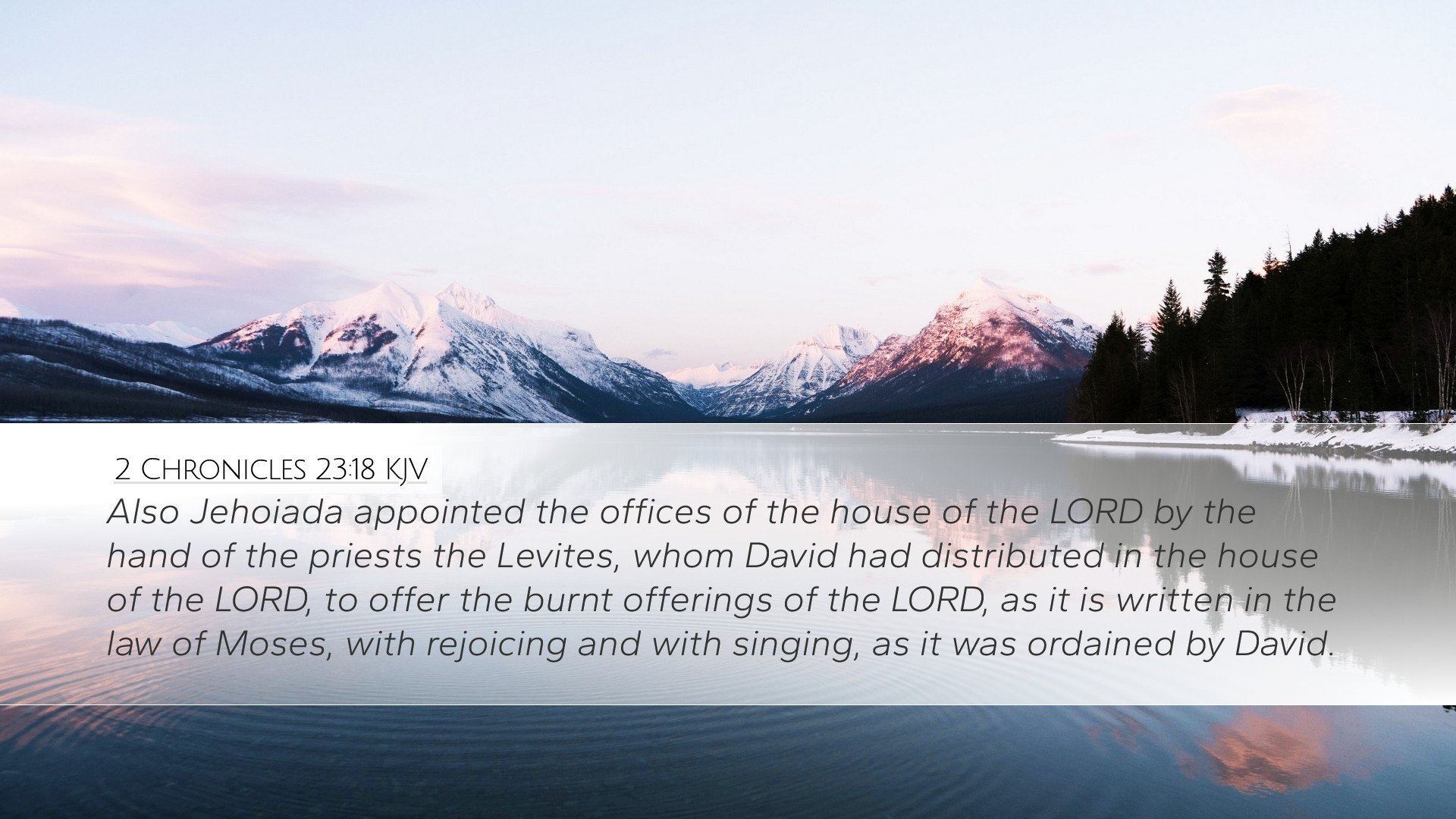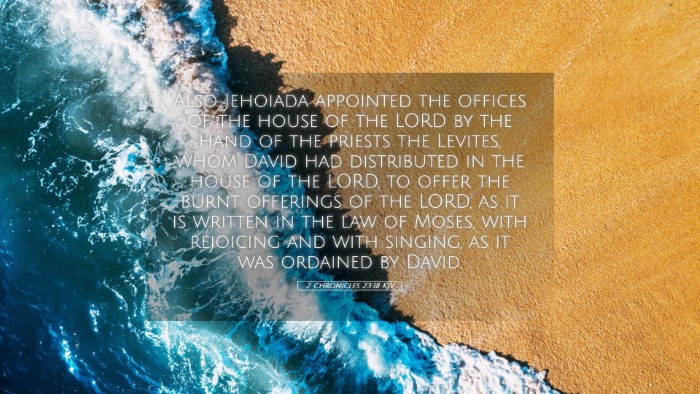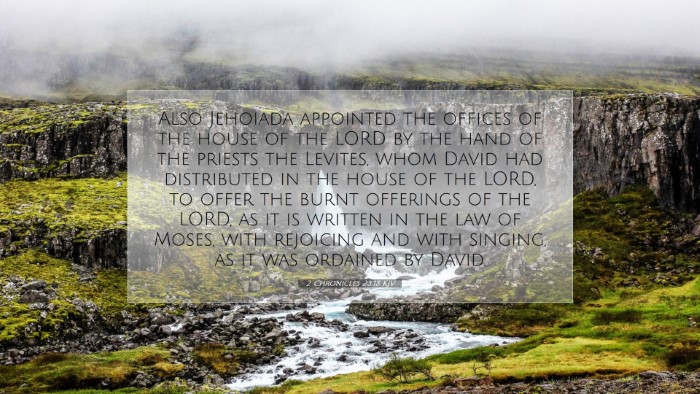Commentary on 2 Chronicles 23:18
Verse Context: 2 Chronicles 23:18 states: "Also Jehoiada appointed the offices of the house of the Lord by the hand of the priests the Levites, whom David had distributed in the house of the Lord, to offer the burnt offerings of the Lord, as it is written in the law of Moses, with rejoicing and with singing, as it was established by David."
Historical Context
This verse captures a pivotal moment in the history of Judah, where Jehoiada the priest plays a critical role in restoring true worship after the corrupt reign of Athaliah. His actions reflect a return to the covenant faithfulness that characterized David's reign.
Theological Significance
Jehoiada's appointment signifies the restoration of proper worship and order in God's house, emphasizing the priestly duties intended from the Law of Moses. This returns to the core of Israel's relationship with God, marked by obedience and reverence.
Commentary Insights
- Matthew Henry: Henry emphasizes the significance of Jehoiada's role in re-establishing the Aaronic priesthood and the Levites. He observes that the zeal for God's house reflects a need for purity in worship. The appointed priests were tasked with ensuring that the sacrifices and the public worship were aligned with God's commands, fostering a community grounded in the law and joy in worship.
- Albert Barnes: Barnes elaborates on the meticulous manner in which Jehoiada sought to organize the priests and Levites. He points out that the restoration efforts involved returning to fundamental practices as outlined by David, further indicating Jehoiada's reverence for historical precedent in worship. This deep respect for tradition ensures continuity in worship practices and underscores the theological importance of maintaining the law in the life of the nation.
- Adam Clarke: Clarke highlights the importance of music and rejoicing in the worship process. He points out that the acts of offering burnt offerings were not mere rituals but were imbued with joy and celebration. This suggests that worship is both a duty and a privilege, where the hearts of the participants must align with the act itself, thus enhancing the communal experience of worship.
Practical Applications
From this study, several practical applications for today’s church can be derived:
- Restoration of Worship: Just as Jehoiada restored proper worship, contemporary churches must assess and restore aspects of worship that may have been lost or diluted.
- Commitment to God’s Law: The emphasis on the Law of Moses reminds believers today of the importance of grounding worship practices in Scripture. The church must not deviate from the teachings of the Word.
- Joyful Worship: Worship should be characterized by joy and thanksgiving. Engaging the congregation in a way that nurtures rejoicing reflects the fullness of God’s grace.
Conclusion
The verse of 2 Chronicles 23:18 serves as a model for worship and service among God’s people. It challenges current leaders and congregants to reflect on the manner in which worship is conducted, emphasizing the necessity of returning to foundational truths, celebrating in unity, and honoring God's commands. The insights from respected commentators highlight that true worship not only honors God but also fosters a vibrant community of faith.


